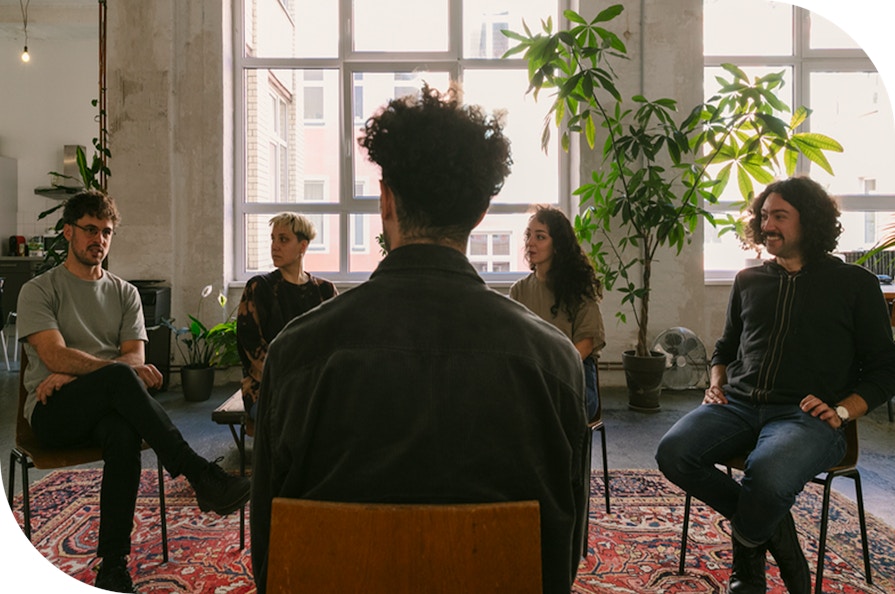If you or someone you care about is in crisis, text or call 988 or explore other crisis services for 24/7 help

Finding Effective Help with Support Groups
A guide to understanding what support groups are and how they can help

AUTHOR
Malia Clark
Writer, Project Healthy Minds

CLINICAL REVIEWER
Dr. Andy Sekel, PhD
Board Member, Project Healthy Minds
Jun 23
Est Reading Time: 3 mins
Whether you’re working through anxiety, depression, trauma, or just the everyday challenges of life, having someone who truly “gets” you can make all the difference.
In fact, one of the most powerful resources for mental health is social support — having people to lean on and vent to. Support groups can help you connect with people who are dealing with similar struggles and work through challenges together.
What to know about support groups
Support groups offer emotional and practical support for people navigating similar mental health challenges, life events, or recovery journeys. These groups are typically moderated by licensed mental health professionals or facilitators — often peers — trained by mental health professionals, which ensures the space is structured, safe, and rooted in evidence-based approaches.
Support groups can take different forms, such as:
Virtual or in-person group meetings
Topic-specific sessions focused on grief, substance use, depression, or other mental health concerns
Ongoing or time-limited formats, depending on the organization
Before you go: understand the group's format, confidentiality policy, and rules of conduct.
What makes support groups powerful is the sense of shared experience. They create a safe space to connect with others who truly get it, guided by facilitators who ensure the environment remains respectful, grounded, and emotionally safe.
How to find a support group that’s right for you
The best support group will make you feel heard, respected, and not alone. Here are a few tips for finding the right fit:
Start with trusted organizations. Look for support groups hosted by mental health nonprofits, hospitals, recovery centers, or licensed clinical practices. These groups are more likely to meet clinical oversight standards and follow evidence-informed practices. See the support groups that we list here.
Explore virtual options. If in-person sessions aren’t accessible, many organizations now offer secure, professionally moderated online groups.
Try a few before you commit. It's okay if the first group you try isn’t the right fit. Each group has its own dynamic—trust your gut about what feels safe and supportive.
Look for facilitation, not just conversation. High-quality groups are guided by trained facilitators who know how to create structure, encourage healthy boundaries, and manage group dynamics.
No matter what you’re facing—grief, substance use recovery, chronic illness, anxiety, or other challenges—there’s a support group led by facilitators who can help you connect with others and move toward healing.
Ready to take the first step?
Find a support group now.
Support group Services
This content is for informational purposes only and is not a substitute for professional advice, diagnosis, or treatment. If you're in crisis, visit our Crisis Services page or call 988 for the Suicide & Crisis Lifeline. Call 911 if you're in immediate danger.
Project Healthy Minds does not endorse any specific services or providers.
© 2025 Project Healthy Minds Corporation. All rights reserved. Project Healthy Minds Corporation is a qualified 501(c)(3) tax-exempt organization. Tax ID Number: 82-3616589. By accessing or using this website, you agree to the terms, conditions, statements, disclosures and policies in our Terms of Use and Privacy Policy.
Loading Amplitude Guides and Surveys...
